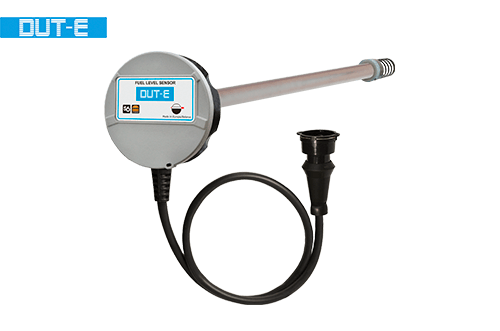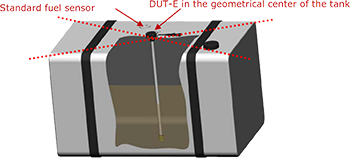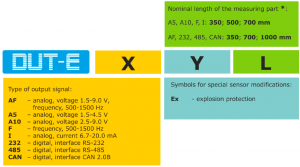
Fuel level sensor

DUT-E fuel level sensors are used for accurate fuel level and volume measurement in tanks of vehicles and stationary units. DUT-E allows to determine current fuel volume and change in volume (refuelling or draining) of fuel in the tank.
DUT-E is used in GPS tracking and vehicle telematics systems as additional fuel sensor or as a replacement of standard built-in (factory) fuel level sensor. When used as a part of telematics system, DUT-E allows to get reliable and accurate information on current fuel volume in the tank and to reveal misuse and fuel theft from tank. DUT-E also gives a general overview on fuel usage by vehicle or stationary unit.
Tasks
![]() Monitoring of tank refuelling and fuel draining
Monitoring of tank refuelling and fuel draining
![]() Fuel theft prevention
Fuel theft prevention
![]() Fuel consumption monitoring
Fuel consumption monitoring
DUT-E application
Built on new technology – IoT Burger
DUT-E fuel level sensors are built on IoT Burger technology and support S6 technology. IoT Burger technology allows maximum “on board” data processing. Raw data on fuel level is refined by sensor and only useful information is sent to telematics unit. This allows to avoid blind spots caused by data transfer interval and get more accurate and stable information in telematics software.
Multi-tank measurement with S6 technology
S6 technology is used for creating a network of IoT devices within an object. DUT-E are compatible with S6 technology and that allows to create a network of sensors on one vehicle/stationary unit. This feature allows to monitor fuel volume in several tanks at the same time and also gives an opportunity to connect other telematics onboard equipment. Main advantages is that all sensors are configured and all data are sent through a single cable, connected to CAN-port of telematics device.
Cut length by 90%, extend to 6000 mm
Measuring probe of DUT-E can be cut by 90% of its initial length or/and extended to 6000 mm. Length cutting/extension can be done right at the place of installation, just before mounting to fuel tank. That increases installation speed installation time, reduces costs for sensor delivery to place of installation, what is especially important for projects where fuel tanks are higher than 1000 mm.
DUT-E installation
DUT-E has a standard 5-bolted flange and can be installed either in a place where the standard fuel sensor is situated or in a separate aperture in the fuel tank. All necessary details for the installation and sealing of DUT-E sensor are present in DUT-E mounting kit.
When installation of DUT-E is complete, you should perform tank calibration. A calibration table is built in the process, where the output signals of the sensor correspond to correct fuel levels in the tank.
This table is used by a fuel monitoring system to determine how much fuel is in the tank.

Install DUT-E in geometric center of a fuel tank.
| Operating principle | capacitive | |
| Measurement inaccuracy, %, not more than | 0.2 for stationary fuel tanks and standing vehicles; 1 for moving vehicles |
|
| Supply voltage, V | 10-50 | |
| Overvoltage protection, V | up to 100 | |
| Operating temperature, оC | from -40 to +85 | |
| Relative measuring error (to the length of the measuring part), %, not more than | ±1 | |
| Output signal |
* – other output are also available on request |
|
| Standard length, mm | 350, 700, 1000 | |
DUT-E order identification codes

* Corresponds to the external height of most common tanks.
Upon Customer request DUT-E sensors can be produced with any measuring probe length up to 1,400 mm with the quarterly order quantity from 500 pcs.
For orders less than 200 units per quarter the price will be 10 % higher.
Examples of DUT-E ordering identification codes:
Fuel level sensor DUT-E CAN L=1000 mm,
(CAN 2.0B interface, measuring probe length 1000 mm).
Fuel level sensor DUT-E A10 L=700 mm,
(output voltage from 1.5 to 9.0 V, measuring probe length 700 mm)









